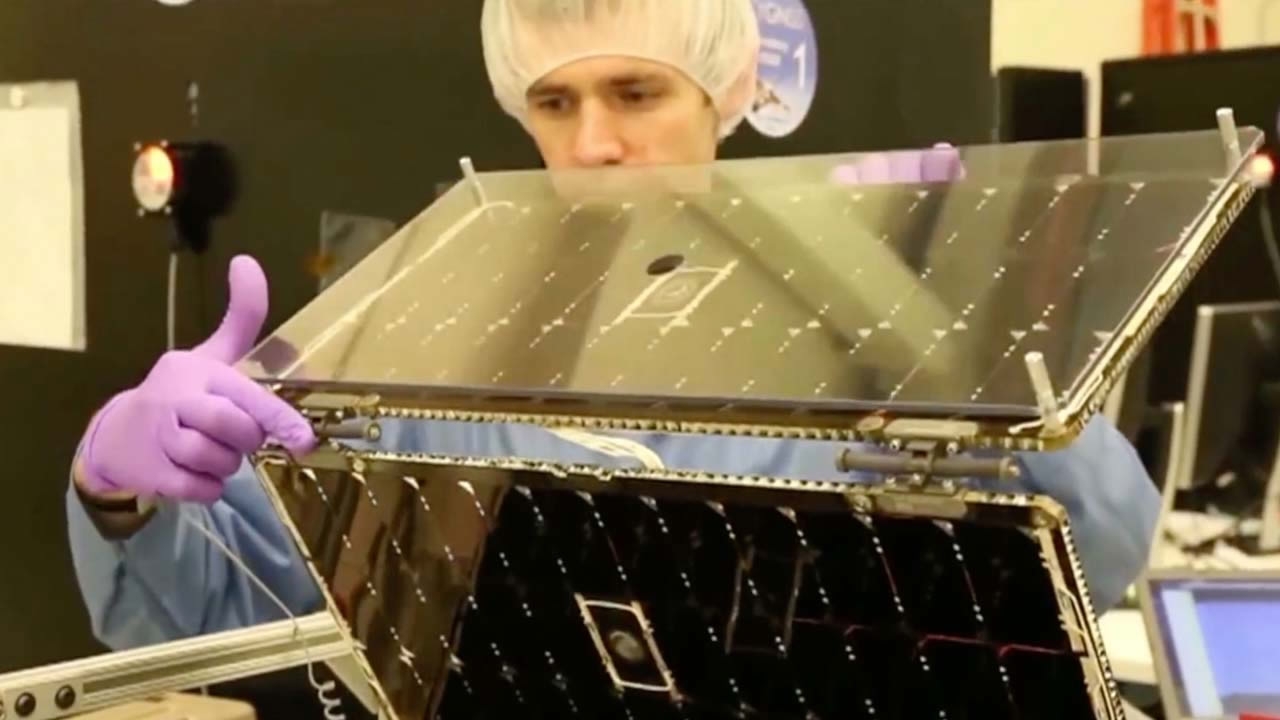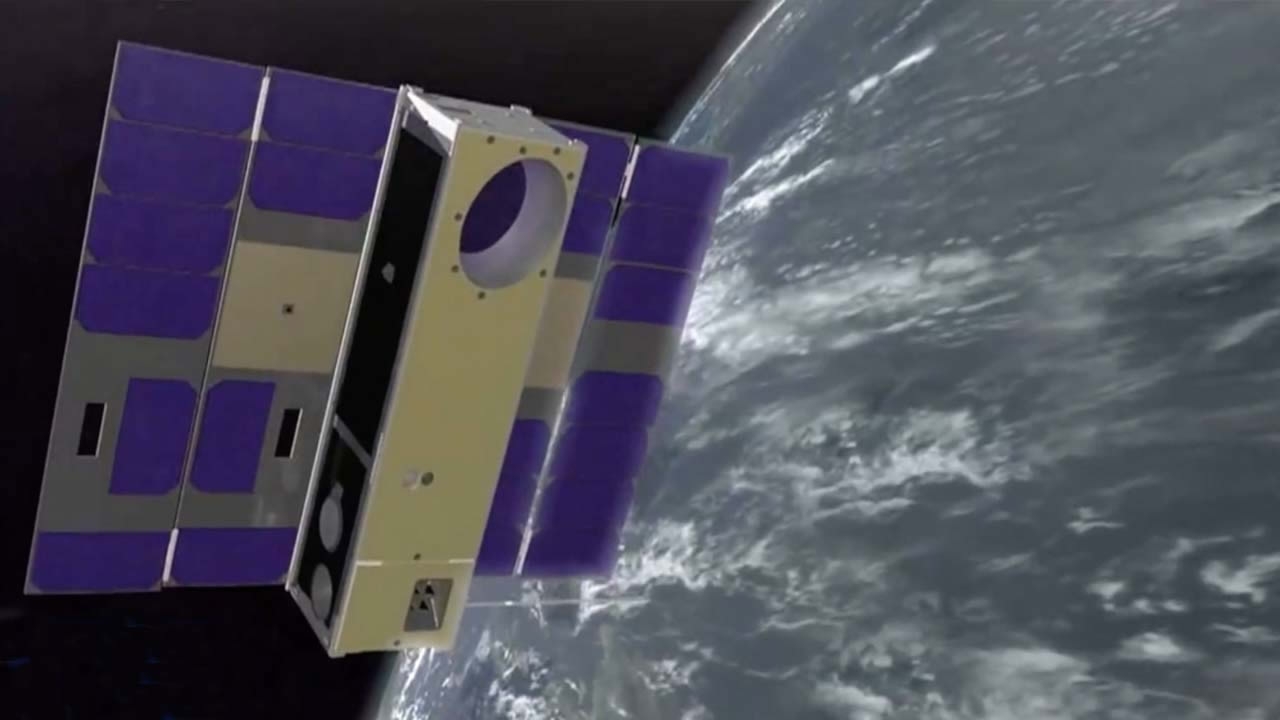By CGTN Africa
Known as nSight1, it is orbiting Earth and capturing images with a remote sensing camera, the first time ever a private company in Africa has invested in building and launching a satellite.
Scientists spent six months designing and constructing the satellite, which saw most of the space-related companies operating in South Africa teaming up.
"The satellite is part of an international swarm of satellites which is used to measure the thermosphere of the earth," explains Sias Mostert, chairperson of the SCS Aerospace Group.
The space science industry in South Africa is a tightknit group of people, and the government is heavily involved in the sector.

It took six months to design and construct nSight1. /CGTN Photo
"Nano satellite launch actually just confirms that what we have started on (is) the right track, and it really is the result of the hard work that we have put, as government, in partnership with universities and other private sector players," said Mmboneni Muofhe, deputy director-general of the Science and Technology Department.
The technology developed is Africa's first.
“The new generation imaging payload that SCS Space is pioneering uses (of) new sensors that give you extremely good quality earth observation capability from such a small Nano satellite platform,” said Mostert.
The country's government sees other opportunities, from telecommunications to security.

The satellite is part of an international swarm of satellites used to measure the thermosphere of the Earth. /CGTN Photo
"When you look at security, you're looking at for example how space science can be used in terms of issues of border patrolling. We have huge border areas and just to think that every time you are going to have soldiers moving around, it's not practical. So I think we can really look at how space science can actually play a role there," said Muofhe.
On a broader level, stakeholders in the sector are keenly aware of developing talent.
"Satellite engineering, as a career, sounds like a foreign concept, unless you can demonstrate that it is, that you can reach it, that you can touch it. So a mission like the nSight1 by SCS Space is critical, to make it real for young people who want to consider studying engineering or computer science," said Mostert.
Science and technology and bringing people into that environment is important for South Africa, as it will ensure that scientists of today are going to solve the problems of tomorrow.









